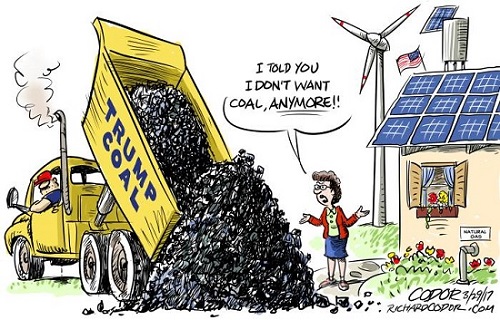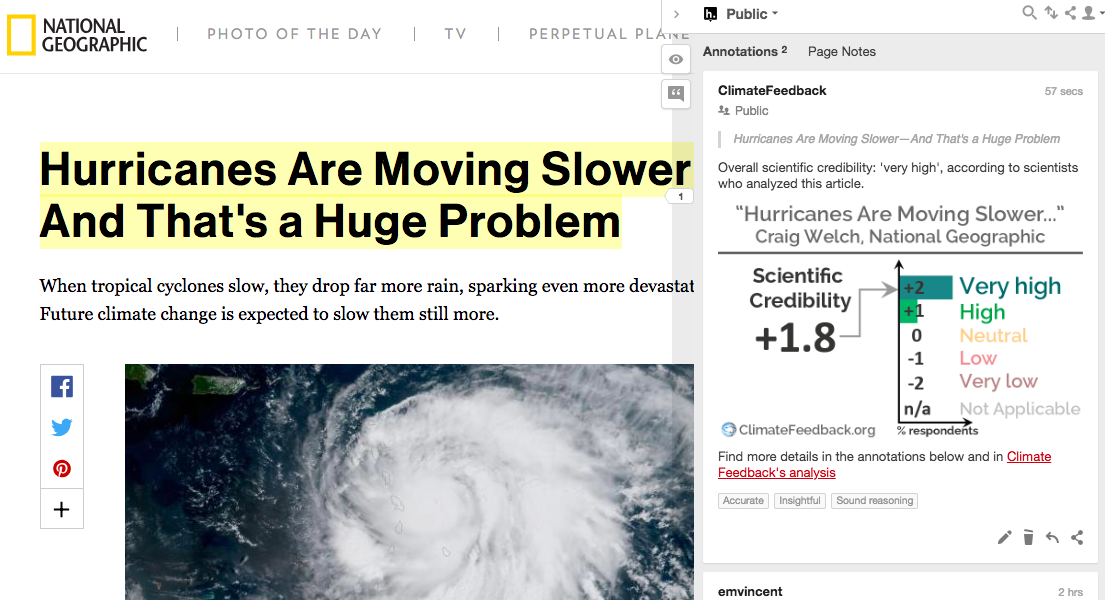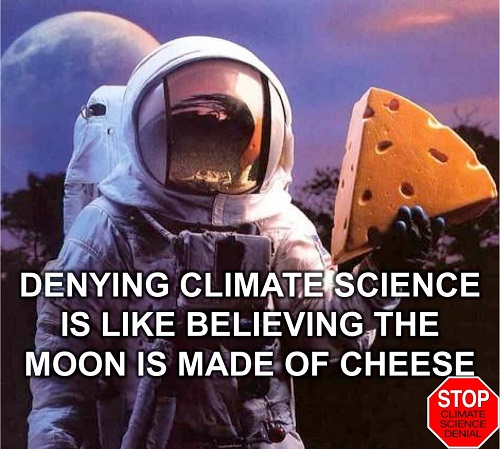
Story of the Week... Toon of the Week... SkS Spotlights... Video of the Week... Coming Soon on SkS... Climate Feedback Reviews... SkS Week in Review... Poster of the Week...
The models that inform climate policymaking are fatally flawed.

One of the more vexing aspects of climate change politics and policy is the longstanding gap between the models that project the physical effects of global warming and those that project the economic impacts. In a nutshell, even as the former deliver worse and worse news, especially about a temperature rise of 3 degrees Celsius or more, the latter remain placid.
The famous DICE model created by Yale’s William Nordhaus shows that a 6-degree rise in global average temperature — which the physical sciences characterize as an unlivable hellscape — would only dent global GDP by 10 percent.
Projections of modest economic impacts from even the most severe climate change affect climate politics in a number of ways. For one thing, they inform policy goals like those President Obama offered in Paris, restraining their ambition. For another, they fuel the arguments of “lukewarmers,” those who say that the climate is warming but it’s not that big a problem. (Lukewarmism is the public stance of most Trump Cabinet members.)
Climate hawks have long had the strong instinct that it’s the economic models, not the physical-science models, that are missing something — that the current expert consensus about climate economic damages is far too sanguine — but they often lack the vocabulary to do any more than insist.
As it happens, that vocabulary exists. At this point, there is a fairly rich literature on the shortcomings of the climate-economic models upon which so much political weight rests. (Here’s an old post of mine from 2015 bashing them.)
Two recent papers help simplify and summarize that literature. They are addressed to different audiences (one the US, one the international community), but both stress the importance of improving these lagging models before the next round of policymaking. I’ll touch on the US-focused one first, the international one second.
We are almost certainly underestimating the economic risks of climate change by David Roberts, Energy & Environment, Vox, June 9, 2018


ScienceNordic, launched in November 2011, is the trusted English-language source for science news from the Nordic countries.
We cover science in the broadest sense – the human sciences as well as natural science, health and technology.
ScienceNordic is the result of a joint effort from two well-established science news services, Forskning.no in Norway and Videnskab.dk in Denmark, which work in close collaboration with partners in Sweden, Finland, Iceland, Greenland, the Faroe Islands and Åland.
Our team of experienced science reporters and editors follow the regional scientific communities closely and report on the latest and greatest discoveries.
Videnskab.dk and Forskning.no are both highly regarded, award-winning science news services, published in Danish and Norwegian respectively. Both disseminate national and international science news through their independent editorial offices.
Our content is targeted toward the global research community: researchers, students, the business sector, innovation clusters, international institutions and media – along with anybody else with an interest in science.
Content from Forskning.no and Videnskab.dk may be made available in English on ScienceNordic, and content produced for ScienceNordic may similarly be published in the local languages on Forskning.no and Videnskab.dk.
ScienceNordic is published online and is available to all.
Why chronic floods are coming to New Jersey
Sea level rise will have a profound impact on coastal infrastructure because it’s often built on cheaper, low-elevation land. As sea level rises, the systems that support the densely populated, urban areas — power generation facilities, wastewater treatment plants, and miles of transportation networks — will be at greater risk of flooding.
Significant portions of the US’s eastern coast are also sinking, due to an ancient, melting glacial ice sheet and the subsidence of its bedrock.
The video above details the impacts an accelerated rising sea level will have on the greater New York City metropolitan region.
Why chronic floods are coming to New Jersey by Carlos Waters, Videos, Vox, June 4, 2018

Climate Feedback asked a team of scientists to review the article, Hurricanes Are Moving Slower—And That's a Huge Problem by Craig Welch, National Geographic, June 6, 2018
Four scientists analyzed the article and estimate its overall scientific credibility to be 'very high'.
A majority of reviewers tagged the article as: Accurate, Insightful, Sound reasoning.
Review Summary
This National Geographic article covers a result reported in two recent studies: global warming seems to be causing the movement rate of hurricanes to slow. One study shows this trend in data going back to about 1950, while the other simulates hurricanes in an even warmer world using a climate model. While the process responsible for this trend needs to be studied further, it could be due to a general slowing of windsin areas where hurricanes exist due to differences in warming rate between low and high latitudes.
Scientists who reviewed the article concluded that it does a good job of placing the finding in context and asking input from scientists with expertise on the topic for validation.
National Geographic accurately covers research pointing to slower-moving hurricanes, Edited by Scott Johnson, Climate Feedback, Jun 8, 2018

Posted by John Hartz on Sunday, 10 June, 2018
 |
The Skeptical Science website by Skeptical Science is licensed under a Creative Commons Attribution 3.0 Unported License. |